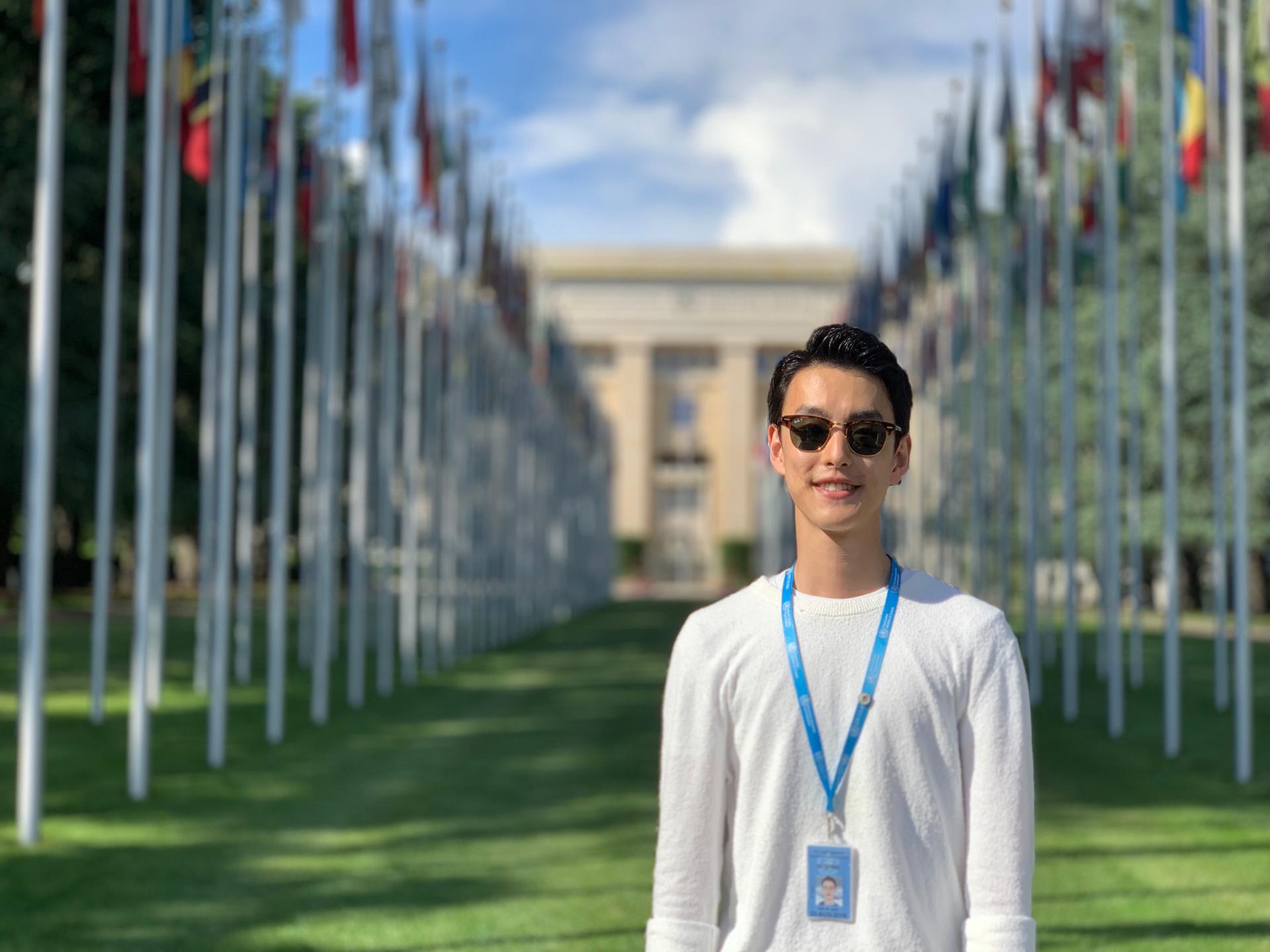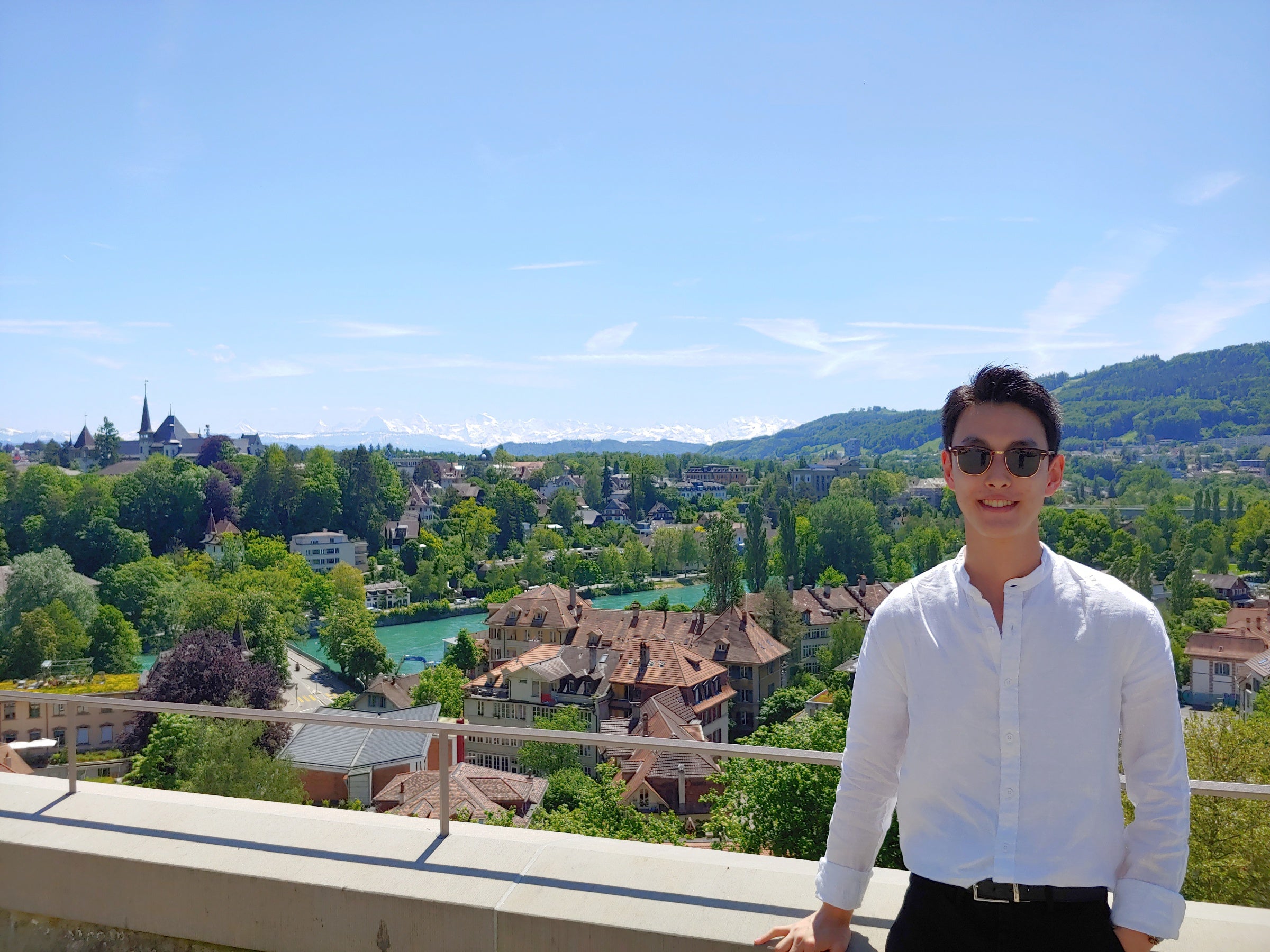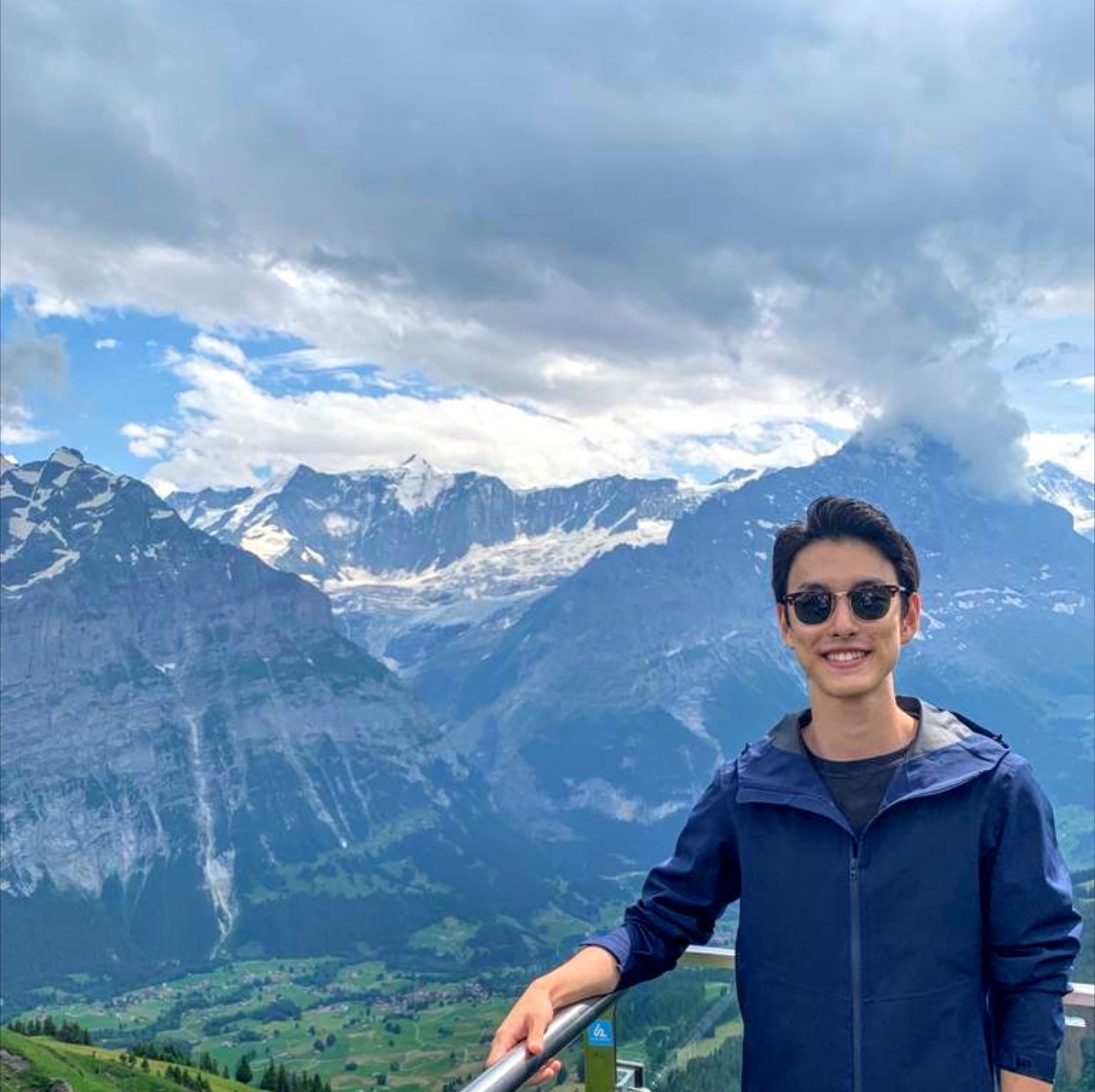
Pharmacy student joins World Health Organization influenza team for co-op term
John Kim never thought he’d land an intern job with the World Health Organization (WHO).
“When I spoke to previous interns, I learned that many of WHO interns were Masters or PhD students from places like Harvard, Yale, Oxford. It’s a very competitive process,” he explains. “I was interested in the Epidemiology Team within the Global Influenza Programme, and on that team almost all the interns had a background in epidemiology. As a pharmacy student, what chance did I have?”
That’s why the Rx2020 student was shocked when he received not one, but two replies to his online application. It turned out that his unique skillset – a combination of lab work, experiment design, published papers, and his pharmacy education – made him an attractive candidate to the team charged with examining influenza prevention, monitoring, and vaccination around the world.
I was excited, but I also had some reservations. The position was at the WHO’s headquarters in Geneva, Switzerland. It was expensive and far from home. But everyone told me that having experience at the WHO would be a major benefit to my career, regardless of what field I end up in.
So it was that John travelled to Switzerland in June to start a three-month work term. It was an unpaid internship, but through a combination of funding from the University of Waterloo and School of Pharmacy as well as other sources, he was able to offset most of the costs.
“At first, I wasn’t sure what I could bring to the team. The Epidemiology Team was made of highly skilled epidemiologists and MDs with research backgrounds. But I soon realized that, as the only pharmacy educated person on the team, I had a lot to offer with my own unique perspective.”
John came into the role with significant research experience under his belt. He’d done wet lab work as a high school student volunteering at Simon Fraser University in BC. In his undergrad in Life Sciences at University of Waterloo, he trained under Niels Bols, distinguished professor emeritus and cell biologist, and contributed to several publications, and he continues to conduct research today with Prof. William W.L. Wong at the School of Pharmacy. These skills and more made him successful at the WHO where he supported several large projects related to influenza and global public health.
“Right now, the WHO has identified global influenza surveillance standards – those are the policies and procedures that are recommended to monitor influenza cases and outbreaks around the world,” he explains. “I worked on a report to identify potential alternatives to the current system, which is called a sentinel surveillance system.”
The sentinel surveillance system is employed around the world. Under this system, influenza data is collected systematically from a limited number of surveillance sites. If a patient shows up at a hospital with flu like symptoms, the hospital collects a sample – usually a nasal swab – and sends it to the nearest National Influenza Centre. The centre processes the sample, identifying if it’s influenza or not, and if so, what strain it is. They upload the results and the data is processed and analyzed by teams like John’s at the WHO.

John at the United Nations in Geneva, Switzerland.
All the interns on John’s team were assigned to regions – John’s was southeast and southern Asia – and were responsible for combing through the data and identifying abnormalities. These abnormalities were discussed by the team and potentially forwarded on to others for action.
The sentinel surveillance system is effective, but it does have shortcomings. There can be a significant delay in acquiring, analyzing, and responding to the data. These delays are not detrimental in a normal influenza season, but if there are pandemic-level outbreaks, every second of delay results in a greater spread of the disease. Acquiring information about ongoing influenza cases in real-time is necessary if the WHO wants to be able to respond immediately and control pandemics.
“The WHO will be updating their surveillance standards, and that includes a chapter on potential ‘non-traditional’ methods of influenza surveillance. My research will inform the revision of that chapter; I conducted a scoping review of existing methods, evaluated the evidence and am determining if there are promising alternatives we can recommend.”
John is continuing to work on the project now that he’s back in class. He’s preparing a manuscript of his results and hopes to publish it later in 2019. The project is one of several examples of how his work term at the WHO allowed him to develop and deliver on his own research projects.
“It’s been an incredibly rewarding experience,” he reflects. “I have such an interest in influenza – its complexity, its public health implications – and at the WHO I had the opportunity to attend talks and meet with world-leading researchers in this field.
To be able to ask questions of the authors whose names are on all the papers I read – it was a phenomenal experience, and as a junior researcher it has helped me build my network in invaluable ways.”
John was also sure to take advantage of being in Europe in the summer. He travelled to six different countries and fifteen cities.

John visiting Bern, Switzerland.
“Not only has this opportunity been informative for my career,” he says, “but while travelling I finally had time to outside of the craziness of class and co-op to reflect on my values and interests.
The lessons he’s learned are ones he’ll hold close to his heart as he moves forward in his career. He reflected back on a conversation he had with a senior staff member at the WHO:
“She said that we, young adults, are not the leaders of tomorrow, but rather the leaders of today. We have the knowledge and ability to make meaningful changes right now. We don’t need to wait on the future – we can act on our passions now to start shaping the future today."
There are fantastic opportunities in the Waterloo Works system. But don’t be afraid to explore your passions and interests beyond that – outside of Waterloo, outside of Ontario, outside of Canada. Keep an eye out for these non-traditional experiences – take a risk, make cold calls and emails. You never know where it’s going to take you.

John visiting Grindelwald, Switzerland.